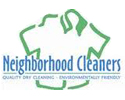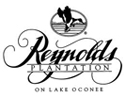Frequently Asked Questions
What is your Mission Statement & Core Values?
Our Mission Statement is to provide the best possible water treatment equipment and service to our clients. We strive to be the standard by which all other water treatment companies are measured. We promise to deliver on our mission by upholding these Core Values: Honesty, Integrity, Dependability, Consistency, Respect, Service, Professionalism, Efficiency, Commitment, Creativity, Passion, & Education.
Tell me a little about your company and its history?
We have been operating at Lake Oconee since 2004 and serve clients across North Georgia and beyond! We don’t dabble in filtration; it continues to be our sole occupation. We are a local, American owned company proud to serve our clients with unmatched professionalism! We are accredited with the Better Business Bureau and have an A+ rating. We encourage you to check us out on Google!
Are you a branded/proprietary dealer?
No, we are not! We are happy to say we are an Independent dealer. This allows us to not be tied to any particular brand – for better or for worse. Rather, we use our long-term experience to ensure we are offering the best possible systems available on the market for our customers. You deserve no less!
What happens when I first contact MWF?
You will be received by our friendly office staff who are happy to assist you. They will connect you with the appropriate Sales Rep to discuss how we can best serve you. Our sales team has 20+ years of experience in filtration and consists of Jon Frketic, Jared Norton, & Stephanie Kelly. We strive to replace high pressure sales with listening, educating, and providing honest options and solutions that fit your
needs. Satisfaction Guaranteed! Isn’t that what you really want?
What about water testing?
We offer basic water testing and consultation in house. We are glad to help with more advanced testing through the University of Georgia Cooperative Extension Lab, which is nonprofit and state certified. This gives our clients confidence about their water and that the test results are honest and accurate.
Who does the actual install & service work?
So glad you asked! Wade Hensley is our Install Manager and is a Licensed, Master Plumber. He has been a part of the team since 2010. Mike McSherry leads our service department as our Customer Service Manager and has been a part of the team since the start in 2004! Talk about experience!
Speaking of service, do you offer a service contract?
No, we do not lock you in to a service contract! We pride ourselves in earning your business each and every time. Our local labor charge for a service call is $95. When you work with us locally on an ongoing quarterly basis, the 4th quarter labor charge is free to you as a thank you for your business!
Do your systems offer cell phone/remote monitoring?
We continue to keep a watchful eye on this technology but currently do not offer it. The available product would require us to lose our independent dealership status (all available equipment to do this is proprietary) and the ability to provide you with what we believe is the best possible product on the market right now. We will continue to monitor this technology, and when we find it available to us as an Independent dealer, we will then decide on whether or not to offer it as part of our product line up.
What can cause our water to have a rotten eggs smell?
There are a two main causes of ‘rotten egg’ odors in water. One is hydrogen sulfide. Hydrogen sulfide often can be caused by decaying vegetation and other organic material beneath the surface. Hydrogen sulfide can enter groundwater supplies and is commonly found in wells and other aquifers. In addition to the unpleasant smell, hydrogen sulfide can also corrode plumbing metals (copper, steel, brass) and shorten the lifespan of household plumbing as well as water demanding appliances with metal water lines or fittings such as dish washers, washing machines, coffee makers, and espresso machines. Hydrogen sulfide can also affect the taste, smell, and texture of many foods due to the correlation between water and food preparation. Water with high hydrogen sulfide content often tastes metallic or even sour to many people. Treatment for hydrogen sulfide can vary based on the concentration and on other contaminants found in the water. The other main cause of ‘rotten egg’ odor is manganese. Manganese is a naturally occurring mineral in rocks and soil and is commonly found in water supplies. In particularly high concentrations manganese can cause discoloration and adverse taste. As with hydrogen sulfide, treatment options for manganese can vary based on concentration as well as other contaminants in the water. Contact Metro Water Filter to help diagnose and treat your water today.
Why does my water taste like the neighborhood swimming pool?
The simplest answer is that if you use municipal water, it has virtually the exact same amount of chlorine in it as a typical swimming pool. In many cases municipal water actually has higher chlorine content than that of a swimming pool. Most municipalities use chlorine to treat household water in order to kill bacteria and other harmful agents in the water supply. While killing bacteria is obviously a good thing, the negative effects of chlorine on the human body and the unpleasant sensory responses (chlorine or bleach taste/odor) lead many homeowners to consider treatment in the home. Chlorine consumption is not limited to simply drinking chlorinated water. In fact the body’s largest organ (the skin) absorbs more chlorine in an average shower than the digestive system absorbs from drinking a gallon of chlorinated water. Chlorine often leads to dry itchy skin and eyes. According to the US Council of Environmental Quality, “Cancer risk among people using chlorinated water is as much as 93 percent higher than among those whose water does not contain chlorine.” The dangers of chlorine are well known to mankind. In addition to its modern day use as a cheap way to treat municipal water, chlorine was used as a weaponized gas in WW1. Chlorine removal in the home is available from Metro Water Filter. We use activated carbon filters to remove chlorine from the household water supply, leaving you with clean, odor free, great tasting water. Contact us today to learn more.
Why do I have milky, foggy, or dingy looking water?
Turbidity (cloudiness or haziness) in water can be caused by several things. It can be caused by sediment or iron bearing rocks within a well aquifer. It can also be caused by surface water seeping down the well casing (this is particularly common in bored, or shallow, wells). Water with high turbidity is generally undesirable for consumption. In addition to being unsightly, water with high turbidity can also clog screens on taps, or even clog small water lines on dishwashers, washing machines, coffee makers, and espresso machines. Not only can that shorten the life of appliances, it can also increase pressure on the water lines themselves and lead to plumbing leaks which could cause thousands of dollars in damage to a home. Turbidity levels also can vary based on a variety of factors. For example, water may have higher or lower levels of turbidity during periods of high use, or after a significant rainfall. These factors and other contaminants help us determine how to best treat your water to remove the culprit. Treatment options for cloudy water vary based on the cause and concentration of solid contaminants. Contact Metro Water Filter today to help diagnose and clear up your cloudy water.
Why does my water taste metal or metallic?
Metallic taste in water can be caused by several contaminants. Iron is a mineral composing 5% of Earth’s crust and therefore is currently found in water supplies. Iron can cause metallic taste. Another naturally occurring mineral, manganese, is often the culprit behind metallic taste. In addition to minerals that cause metallic taste, water with high levels of hydrogen sulfide or even acidic water that has corroded copper plumbing may taste metallic. Treatment options for metallic tasting water vary by contamination level and the overall chemistry of the water. Contact Metro Water Filter today to help diagnose and treat metallic tasting water.
Why does my water leave behind blue stains?
Blue or green stains are generally caused by oxidized copper. Acid water (water with a pH below 7 on a 0-14 scale) will corrode, or oxidize, plumbing metals (copper, steel, brass). Over time the metals dissolve into the water supply and manifest themselves through staining in the home. In addition to stains, acid water can ruin plumbing fixtures and even eat holes in pipes causing plumbing leaks that can lead to thousands of dollars in home damage. While drinking water with low pH is not necessarily harmful, drinking water with copper or other heavy metals can be. Fortunately, acid water can be treated with an acid neutralizer from Metro Water Filter. Acid neutralizers use a combination of filter media designed specifically to raise the pH of the water. All of our acid neutralizers are self cleaning to prevent the media bed from solidifying, ensuring consistent treatment for consistently clean, pH neutral water. Contact Metro Water Filter today to help diagnose and treat your acidic water.
Why do I have scum and water build up on my fixtures? I can clean and clean with very little success?
The most common cause of excessive buildup on fixtures and surfaces (especially tile) is hard water. Hard water is composed primarily of calcium (a natural mineral) and magnesium. While there are no immediate health hazards from drinking hard water, the minerals in the water can really do a number on the fixtures and appliances in your home. Hard water reduces the life of water heaters, dishwashers, ice makers, refrigerators, washing machines, coffee makers, and the list goes on. Any water demanding fixture or appliance exposed to hard water is at risk of not only reduced longevity but also unsightly white, brown, or gray buildup throughout your home. To top it all off, most high quality hair and skin care soaps will not work properly when activated with hard water. The calcium prevents the water from lathering up, meaning more soap–and more of your money– are flushed down the drain every day. The best way to treat hard water is with automatically recharging water softener. Softeners use ion exchange softening resin to remove the calcium ions from the water. When the resin bed becomes full of calcium ions, it induces a backwash cycle and recharges the resin bed with sodium (or potassium) ions from a brine tank. This process has been around a long time, but new technology enables softeners to go longer between regeneration cycles and use less salt than ever before. Contact Metro Water Filter today to help diagnose and treat your hard water problem.
I hear ads on the radio and read about salt-free water systems. Do you carry those?
We hear and read those same ads, and we’ve also ordered and tried those same products. We invite you to come visit us and see them for yourselves any time. Salt free water softeners almost sound too good to be true-not only do they soften the water but they also filter the water and don’t use any salt or any other additives whatsoever. Well, if you’ve ever heard the expression ‘if it sounds too good to be true, it probably is,’ then now is a good time to invoke it. We have ordered and independently tested every ‘salt free,’ ‘scale removal’ system we can get our hands on, and the blunt truth is that they don’t work. The hardness level before and after doesn’t drop one single grain per gallon in most cases. By comparison an ion exchange resin softener reduces hardness from 50+grains per gallon to 0-1 (perfectly soft). At Metro Water Filter, we pride ourselves on bringing our customers the best water possible. We are always exploring new ways to better serve our clients, and we are committed to doing what is right. Please contact Metro Water Filter today to help diagnose and treat your water issues the professional way.
Why does my water taste fishy?
Fishy taste in water can be caused by many contaminants and types of bacteria. Fishy tasting water can be caused by nitrates, coliform bacteria, or even E.coli. While some forms of bacteria may not be harmful to humans and pets, many are. At Metro Water Filter we carry a full line of automatic chlorinators and UV (Ultra Violet) Light disinfectant systems. Chlorine treatment on a well (with a carbon filter) can be an effective way to kill harmful contaminants in private wells. UV Light bacteria treatment is a technology that enables water to pass through an ultraviolet light chamber, killing bacteria, cysts, E.coli and many other harmful contaminants. UV lights also come with the added benefit of ‘chemical free’ treatment. As long as a UV system is plugged in, the water is treated for contaminants 24/7/365. Whenever there is a chance of bacteria in the water, individuals are encouraged to act proactively. Contact Metro Water Filter today to help diagnose and treat your water for bacteria and other harmful contaminants.
How can I tell if nitrates or fertilizers are in my water?
Nitrate is a naturally occurring form of nitrogen, essential for plant growth and often added to soil to improve productivity. After a rainfall or irrigation, water moves through the soil and carries dissolved nitrates with it, into the ground water. For homeowners using wells or springs, water should be tested for nitrates by a water treatment professional, as it is potentially harmful to the health of both humans and animals.
What is the definition of “safe” water?
Safe water means water that will not harm you if you come in contact with it. The term frequently refers to drinking water, but it can be applied to water for swimming or other uses. To be safe, the water must have sufficiently low concentrations of harmful contaminants that typically make people sick.
How can I get my water tested?
You can contact your county or state health department for a list of state certified laboratories in your area that do water testing. State and local health or environmental departments often test for nitrates, total coliforms, fecal coliforms, volatile organic compounds, and pH levels. Health departments should also have a list of the state-certified laboratories in your area that test for a variety of Water Quality Indicators (WQIs) and contaminants. In addition to state certified labs, every Metro Water Filter vehicle driven by a trained employee contains a mobile testing ‘lab’ that can be used to identify most minerals and also to ascertain the pH. We offer on-site testing for basic water chemistry, and we also offer off-site testing for bacteria, E.coli, and heavy metals. To set up an on site water analysis, please contact Metro Water Filter.
What happens if there is Ecoli in the water?
E. coli is a type of fecal coliform bacteria commonly found in the intestines of animals and humans. E. coli in your intestines is not harmful. However, if it is found in other areas of your body it can lead to serious illness and sickness. The presence of E. coli in water is a strong indication of recent sewage or animal waste contamination of some kind. If you think there might be Ecoli in your water it should not be consumed for any reason.
Where can we detect water pollution?
Water pollution is detected in laboratories, where small samples of water are analyzed for different contaminants. Living organisms such as fish can also be used for the detection of water pollution.Water pollution is any chemical, physical or biological change in the quality of water that has a harmful effect on any living thing that drinks or uses or lives in it. When humans drink polluted water it often has serious effects on their health, and the health of their loved ones.
What are the main pollutants found in water?
There are several classes of water pollutants. The first are disease-causing agents. These are bacteria, viruses, protozoa and parasitic worms that enter sewage systems and untreated waste. A second category of water pollutants is oxygen-demanding wastes; wastes that can be decomposed by oxygen-requiring bacteria.
Where does drinking water come from?
The drinking water that is supplied to our homes comes from either surface water or ground water. Surface water collects in streams, rivers, lakes, and reservoirs. Ground water is water located below the ground where it collects in pores and spaces within rocks and in underground aquifers. Ask your local government agency where your particular drinking water is from.
What type of health risks can be associated with low water quality?
The presence of certain contaminants in our water can lead to health issues, including gastrointestinal illness, reproductive problems, and neurological disorders. Infants, young children, pregnant women, the elderly, and immunocompromised persons may be especially at risk for becoming ill after drinking contaminated water. For example, elevated levels of lead can cause serious health problems, especially for pregnant women and young children. Federal law requires that systems reduce certain contaminants to set levels, in order to protect human health.
What happens if there is a different taste, smell, or look to my water?
Any time you notice a significant change in your water quality, you should have it tested. A change in your water’s taste, color, or smell is not necessarily a health concern. However, sometimes changes can be a sign of problems, and a great indicator to at least get the water checked by a local lab.































